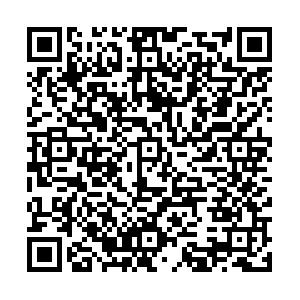Association between general self-efficacy and HIV-related stigma among newly HIV-diagnosed man who have sex with man
-
摘要:
目的 了解新确诊人类免疫缺陷病毒(human immunodeficiency virus,HIV)阳性男男性行为者(men who have sex with men,MSM)一般自我效能(general self-efficacy,GSES)与HIV相关羞辱的关系。 方法 2013年4月-2014年4月,在北京市招募满足纳入标准的MSM进行HIV检测,对检测中确诊为HIV阳性的MSM进行面对面访谈调查。采用多元线性回归,分析新确诊HIV阳性MSM一般自我效能与HIV相关羞辱的关系。 结果 367名新确诊的HIV阳性MSM的一般自我效能得分为(31.5±6.3),HIV相关羞辱得分(26.9±20.9)。多元线性回归显示,校正混杂因素后,一般自我效能与HIV相关羞辱呈负相关(GSES为连续变量:β=-0.010,P=0.022;GSES为二分类变量:β=-0.117,P=0.028)。 结论 新确诊HIV阳性的MSM面临HIV相关羞辱的困扰。对于新确诊HIV阳性的MSM来说,较高的自我效能有助于减轻HIV相关羞辱。 Abstract:Objective To investigate the association between general self-efficacy (GSES) and human immunodeficiency virus(HIV)-related stigma among newly HIV-diagnosed men who have sex with men (MSM) in Beijing. Methods HIV testing was conducted among MSM who met the inclusion criteria in Beijing from April 2013 to April 2014. Face-to-face interviews were conducted among newly HIV-diagnosed MSM. Multiple linear regression was used to analyze the association between general self-efficacy and HIV-related stigma among newly HIV-diagnosed MSM. Results Of the 367 newly HIV-diagnosed MSM, the general self-efficacy score of was (31.5±6.3) and the HIV-related stigma score was (26.9±20.9). Multiple linear regression showed that after adjusting for confounding factors, general self-efficacy was negativly associated with HIV-related stigma (GSES was continuous variable β=-0.010, P=0.022; GSES was dichotomous variable β=-0.117, P=0.028). Conclusions The newly HIV-diagnosed MSM face the problem of HIV-related stigma. For newly HIV-diagnosed MSM, higher self-efficacy helps reduce HIV-related stigma. -
Key words:
- Men who have sex with men /
- General self-efficacy /
- HIV-related stigma
-
表 1 北京市367名新确诊HIV阳性MSM中一般自我效能与HIV相关羞辱的关系
Table 1. Association between general self-efficacy and HIV-related stigma among 367 newly HIV-diagnosed MSM in Beijing
变量 HIV相关羞辱 β值 sx STB t值 P值 F值 adj R2 HIV相关羞辱总分 一般自我效能得分(< 32 VS. ≥32) -0.117 0.053 -0.117 -2.12 0.028 0.80 -0.005 一般自我效能得分(连续) -0.010 0.004 -0.125 -2.30 0.022 0.85 -0.004 感知到的羞辱 一般自我效能得分(< 32 VS. ≥32) -0.520 1.186 -0.023 -0.44 0.661 1.10 0.003 一般自我效能得分(连续) -0.121 0.097 -0.068 -1.25 0.212 1.24 0.007 替代的羞辱 一般自我效能得分(< 32 VS. ≥32) -1.018 0.688 -0.079 -1.48 0.140 0.74 -0.007 一般自我效能得分(连续) -0.186 0.056 -0.181 -3.36 0.001 1.66 0.018 自我羞辱 一般自我效能得分(< 32 VS. ≥32) -2.789 0.948 -0.155 -2.94 0.004 1.65 0.017 一般自我效能得分(连续) -0.231 0.077 -0.161 -2.99 0.003 1.68 0.018 注:MSM:男男性行为者;HIV:人类免疫缺陷病毒;STB:标准系数;adj R2:调整决定系数(调整了年龄、民族、婚姻状况、教育背景、职业、医疗保险、出生地、酒精和毒品使用情况)。 -
[1] 郝阳, 崔岩, 孙新华, 等. "四免一关怀"政策实施十年来中国艾滋病疫情变化及特征分析[J]. 中华疾病控制杂志, 2014, 18(5): 369-374. http://zhjbkz.ahmu.edu.cn/article/id/JBKZ201405001Hao Y, Cui Y, Sun XH, et al, A retrospective study of HIV/AIDS situation: a ten-year implementation of "four frees and one care" policy in China[J]. Chin J Dis Control Prev, 2014, 18(5): 369-374. http://zhjbkz.ahmu.edu.cn/article/id/JBKZ201405001 [2] 中国疾病预防控制中心, 性病艾滋病预防控制中心, 性病控制中心. 2017年12月全国艾滋病性病疫情[J]. 中国艾滋病性病, 2018, 24(2): 111. DOI: 10.13419/j.cnki.aids.2018.02.01.NCAIDS, NCSTD, China CDC. Update on the AIDS/STD epidemic in China in December 2017[J]. Chin J AIDS STD, 2018, 24(2): 111. DOI: 10.13419/j.cnki.aids.2018.02.01. [3] Pereira H, Caldeira D, Monteiro S. Perceptions of HIV-Related Stigma in portugal among MSM with HIV infection and an undetectable viral load[J]. J Assoc Nurses AIDS Care, 2018, 29(3): 439-453. DOI: 10.1016/j.jana.2017.12.002. [4] 杜璇, 周凯, 顾菁, 等. 艾滋病扩大治疗策略下未治疗者的心理健康研究[J]. 中华疾病控制杂志, 2017, 21(12): 1214-1218. DOI: 10.16462/j.cnki.zhjbkz.2017.12.007.Du X, Zhou K, Gu J, et al. A cross-sectional study on the mental health among non-starting ART people living with HIV/AIDS under the ART expansion era[J]. Chin J Dis Control Prev, 2017, 21(12): 1214-1218. DOI: 10.16462/j.cnki.zhjbkz.2017.12.007. [5] Sweeney SM, Vanable PA. The association of HIV-related stigma to HIV medication adherence: a systematic review and synthesis of the literature[J]. AIDS Behav, 2016, 20(1): 29-50. DOI: 10.1007/s10461-015-1164-1. [6] Rueda S, Mitra S, Chen S, et al. Examining the associations between HIV-related stigma and health outcomes in people living with HIV/AIDS: a series of meta-analyses[J]. BMJ Open, 2016, 6(7). DOI: 10.1136/bmjopen-2016-011453. [7] Bandura A. Self-efficacy in changing societies[M]. New York: Cambridge University Press, 1995. [8] Chen G, Gully SM, Eden D. Validation of a new general self-efficacy scale[J]. ORM, 2001, 4(1): 62-83. DOI: 10.1177/109442810141004. [9] Zhao FF, Lei XL, He W, et al. The study of perceived stress, coping strategy and self-efficacy of Chinese undergraduate nursing students in clinical practice[J]. Int J Nurs Pract, 2015, 21(4): 401-409. DOI:10.1111/ijn.12273.Epub 2014 Apr 22. [10] Pasmatzi E, Koulierakis G, Giaglis G. Self-stigma, self-esteem and self-efficacy of mentally ill[J]. Psychiatriki, 2016, 27(4): 243-252. DOI: 10.22365/jpsych.2016.274.243 [11] Liu Y, Vermund SH, Ruan Y, et al. Peer counselling versus standard-of-care on reducing high-risk behaviours among newly diagnosed HIV-positive men who have sex with men in Beijing, China: a randomized intervention study[J]. J Int AIDS Soc, 2018, 21(2). DOI: 10.1002/jia2.25079. [12] Wang ZY, Liu L, Shi M, et al. Exploring correlations between positive psychological resources and symptoms of psychological distress among hematological cancer patients: a cross-sectional study[J]. Psychol Health Med, 2016, 21(5): 571-582. DOI: 10.1080/13548506.2015.1127396. [13] Yang YL, Liu L, Wang XX, et al. Prevalence and associated positive psychological variables of depression and anxiety among Chinese cervical cancer patients: a cross-sectional study[J]. PLoS One, 2014, 9(4): e94804. DOI: 10.1371/journal.pone.0094804. [14] Steward WT, Herek GM, Ramakrishna J, et al. HIV-related stigma: adapting a theoretical framework for use in India[J]. Soc Sci Med, 2008, 67(8): 1225-1235. DOI: 10.1016/j.socscimed.2008.05.032. [15] 丁贤彬, 韩孟杰. HIV感染者和AIDS病人的生存现状及需求[J]. 现代预防医学, 2006, 33(6): 930-931, 939. doi: 10.3969/j.issn.1003-8507.2006.06.028Ding XB, Han MJ. The survival status and needs of HIV-infected people and AIDS patients[J]. Modern Preventive Medicine, 2006, 33(6): 930-931, 939. doi: 10.3969/j.issn.1003-8507.2006.06.028 [16] 肖民扬. HIV/AIDS患者的社会支持和相关歧视/耻辱及高危行为的调查研究[D]. 昆明: 昆明医科大学, 2013.Xiao MY. The investigation of social support, HIV-related discrimination/shame and high-risk behaviours[D]. Kunming: Kunming Medical University, 2013. [17] 王毅, 张洪波, 徐杰, 等. 男男性行为者自我歧视与性行为和心理因素的关系[J]. 中华预防医学杂志, 2010, 44(7): 636-644. DOI: 10.3760/cma.j.issn.0253-9624.2010.07.014.Wang Y, Zhang HB, Xu J, et al, Relations between self-drscrimination of MSM and sexual behavior and psychological factors[J]. Chin J Prev Med, 2010, 44(7): 636-644. DOI: 10.3760/cma.j.issn.0253-9624.2010.07.014. [18] 罗淑星. 男男性行为人群艾滋病患者心理状况与性行为影响因素的研究[D]. 重庆: 第三军医大学, 2017.Luo XY. Analysis of the Psychological Health Status and Sexual Behavior in the HIV-infected Men Who Have Sex with Men[D]. Chongqing: Third Military Medical University, 2017. -




 下载:
下载: 